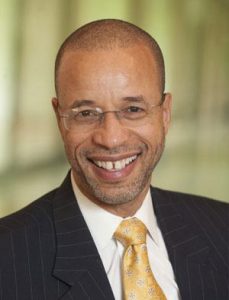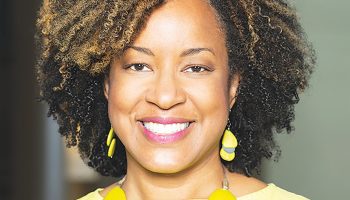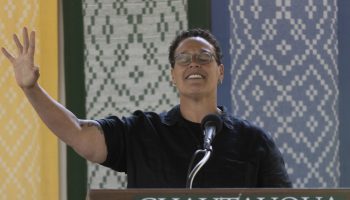
For Frank Thomas, a sermon is more than just a generic speech about God — it’s a powerful collection of words meant to inspire and encourage those listening.
Thomas grew up surrounded by Protestant teachings, as he attended Sunday school and learned about Christianity from his parents.
“All of us come to a point where our parents teach us about God, but there’s a moment when it becomes personal,” Thomas said.
That moment, for Thomas, came when he was a teenager. He said while at a funeral, a preacher brought the word of God to him as a message of hope.
“I heard an African American preacher when I was a teenager,” Thomas said. “I was already a Christian, but when I heard that preacher speak — he was talking directly to me — I heard God in a fresh way, and he called me to share this hope with people in the same way.”
As Thomas entered higher education, he studied famous African American preachers, like Martin Luther King Jr., and found a common denominator in many sermons — hope. Thomas said in African American preaching, there is hope and love in the midst of the hardships African Americans have endured as a people.
Thomas will share the power of the African American sermon in his lecture, “The Power of African American Preaching,” at 3:30 p.m. Wednesday, August 7 in the Hall of Philosophy, as part of the African American Heritage House Speaker Series. He will be drawing from his book How to Preach a Dangerous Sermon, and from a book he co-edited, Preaching with Sacred Fire: An Anthology of African American Sermons 1750 to the Present.
Throughout history, preaching has shown to be an effective tool in sharing love and hope during crisis, Thomas said.
“When the world and the American nation said that we were slaves and we were nothing, nobody,” Thomas said, “the preacher stood up and told the people, ‘And you are a child of God.’ ”
Thomas said from mass incarceration and slavery, to Jim Crow and racism, preaching to share God’s love and mercy has always helped the African American people in their daily lives.
“Preaching has been able to encourage and sustain the African American people,” Thomas said.
He said through tone, text, movement and stories, a sermon is a powerful method of encouragement.
“Ultimately, it inspires and encourages people,” Thomas said. “It challenges them, lifts them and helps people to make a better world.”
Throughout his life, Thomas has brought hope to his own sermons and his lessons in the classroom. He graduated from the University of Illinois at Urbana-Champaign with a degree in philosophy and religion. In 2008, he received his doctorate in rhetoric and preaching from the University of Memphis.
In college, he said he started to get a definite sense that he wanted to be a pastor. After college, he went to Chicago Theological Seminary, and then served as a pastor for 31 years. Seven years ago, he became the Nettie Sweeney and Hugh Th. Miller professor of preaching and New Testament at the Christian Theological Seminary.
As a professor, he teaches pastors about preaching and its importance.
“Preaching is both an art and a science,” Thomas said. “I help people to love their preaching and preach their very best.”
Thomas said it’s important for Chautauquans to learn about this topic and be inspired by the power of preaching. The message of hope and peace is something he hopes people will pay attention to, as the lecture is more of a call to action, Thomas said.
“The goal is to uplift and learn to live together as a human family,” Thomas said. “This isn’t a casual intellectual lecture; people are dying over violence and hate, so the way that I envision this lecture is encouragement for people to go out and do something.”




